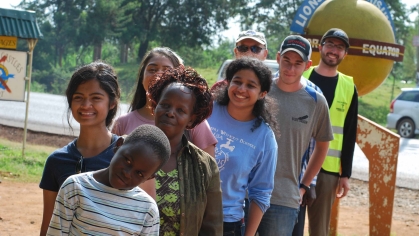MAE Postdoc Named a 2024 Activate Fellow
Michael Grzenda, who recently completed a Rutgers School of Engineering postdoc, has been recognized by Activate Global Inc. as a 2024 Activate Fellow, providing him funding for research in support of innovative spray technology developed in the lab of Jonathan Singer, Associate Professor and Mary W. Raisler Distinguished Teaching Chair in the School of Engineering’s Department of Mechanical and Aerospace Engineering.

“This two-year appointment,” says Singer, “will support Michael as he transitions the spray technology developed in my lab into a startup company. To my understanding, he will be the first member of the Rutgers community to join this prestigious program.”
Since its founding in 2015, Activate Global has partnered with a growing roster of highly esteemed U.S.-based agencies, research institutions, and philanthropies to support scientists, engineers, and early stage entrepreneurs as they bring new, transformative discoveries to market.
As an Activate Fellow, Grzenda is receiving a living stipend, research and professional development funding, and mentorship, while gaining access to a national network of technology leaders, mentors, alumni fellows, as well as other resources to foster his success.
“The fellowship committee looks for promising technologies, but they also look for candidates where they see a lot of potential. I’m extremely honored to have received their vote of confidence,” says Grzenda.
Grzenda worked with Singer’s group for six years – as a doctoral student in the Department of Materials Science and Engineering and most recently as a postdoc in the Department of Mechanical and Aerospace Engineering until June – earning high praise from Singer who describes him “as the most independent and reliable graduate student I have had the pleasure to mentor. His excellence is what led me to continue his employment in the lab as a postdoc.”
An Innovative Technology
While self-limiting electrospray deposition, or SLED, was invented before Grzenda joined Singer’s lab, he reports that he worked on it for the second half of his doctoral research.
According to Grzenda, “SLED is a coating technique capable of wrapping small objects in 3D with nearly 100% deposition efficiency.” This means it has tremendous potential for application as a platform manufacturing technique for everything from medicines to textiles.
“Currently there are three patent applications on the technology, one of which has been allowed in multiple international territories,” Grzenda reports.
Singer, as a start-up co-founder, is continuing with the nascent company part-time, while Grzenda plans to add additional staff as company needs grow. The fellowship will also enable him to focus on issues such as scalability, he notes.
“I’m hoping to use these two years of my fellowship to build up key aspects of the company, so that we’ll have continued success once we leave the safety net of the fellowship,” says Grzenda.


